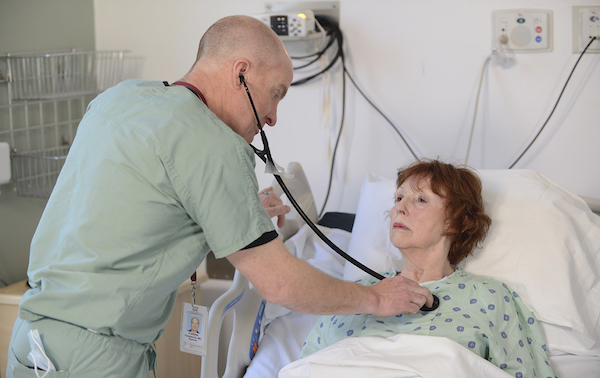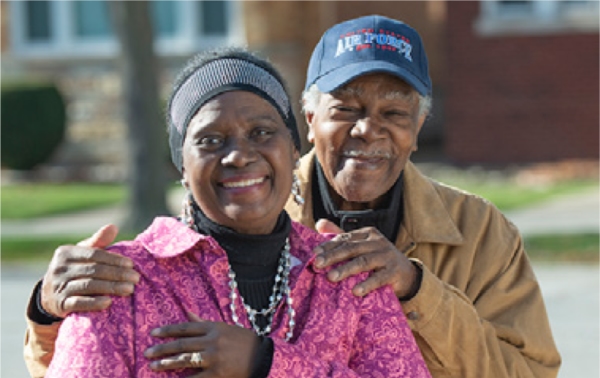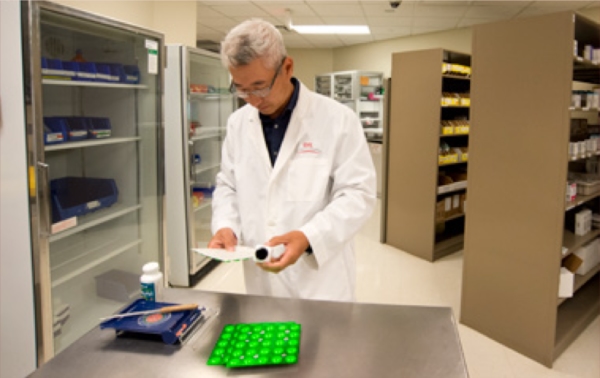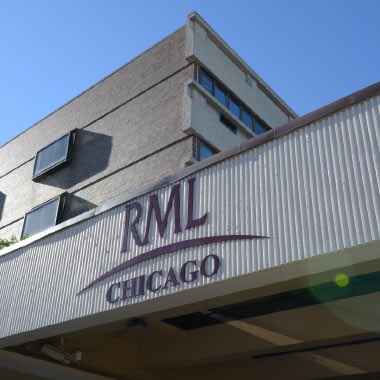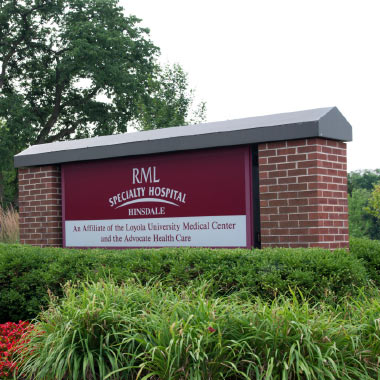Wound Management
Treating slow-to-heal and non-healing wounds is a complex process.
Patients with these kinds of wounds face a serious risk of infection and often suffer from multiple medical complications. Specific therapies and treatments are necessary to help these patients recover and build their strength.
Wound Management at RML is led by certified wound, ostomy and continence nurses supported by the medical supervision of board-certified surgeons physicians. The wound management team includes dietitians, pharmacists, occupational and physical therapists, a physician assistant, and often a physiatrist—all critical to treatment and healing.
The Wound Management team collaborates to set a course of treatment that takes nutrition, blood protein levels and the patient’s ability to fight infection into consideration. Progress is closely monitored, allowing adjustments to treatment and therapies to reach a positive outcome.
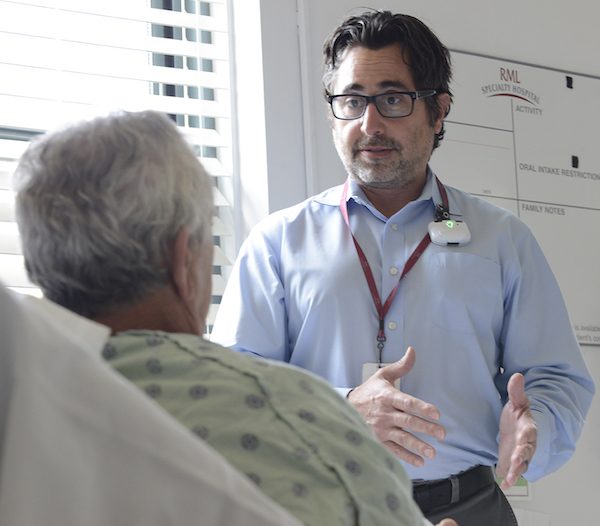
The type of wounds treated at RML include:
- Slow, non-healing wounds due to diabetes, long-term steroid use, cellulitis, burns, or poor nutrition
- Slow-healing surgical wounds such as wound dehiscence (or splitting)
- Wounds resulting from major abdominal surgery, hip or knee replacement, or skin flaps
- Infected wounds (MRSA, VRE or osteomyelitis)
- Wounds due to traumatic injuries
- Pressure ulcers (Stages III or IV)
- Wounds secondary to radiation therapy
- Collagen vascular wounds resulting from auto-immune disease
- Bone infections from exposure
- Enterocutaneous fistulas
RML’s Wound Management Program was recognized with a best practices award by the National Association of Long Term Hospitals for innovations in pressure support. RML developed and implemented a support surface methodology, using specialty beds and mattresses to reduce surface pressures, assist in patient positioning, and meet individual patient wound-healing needs.

